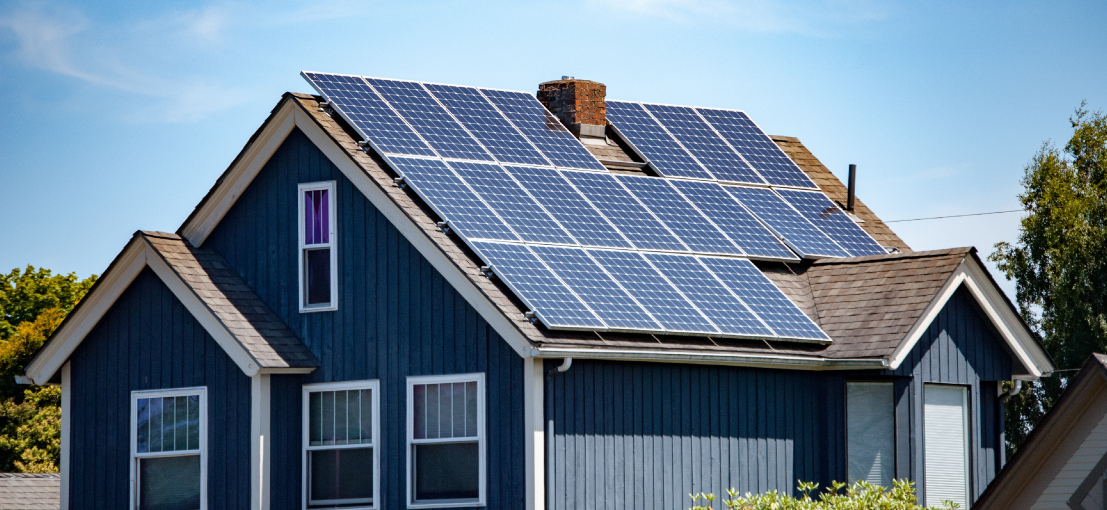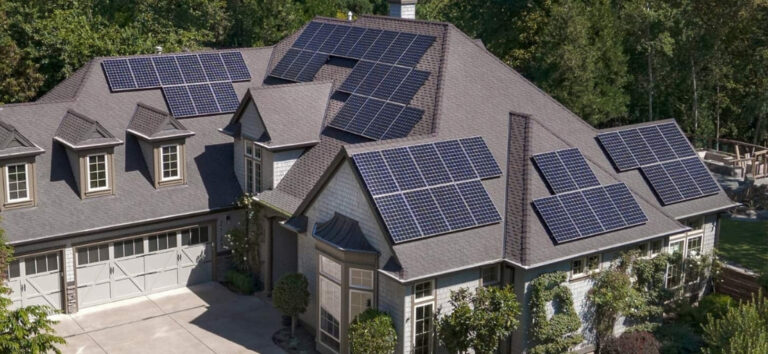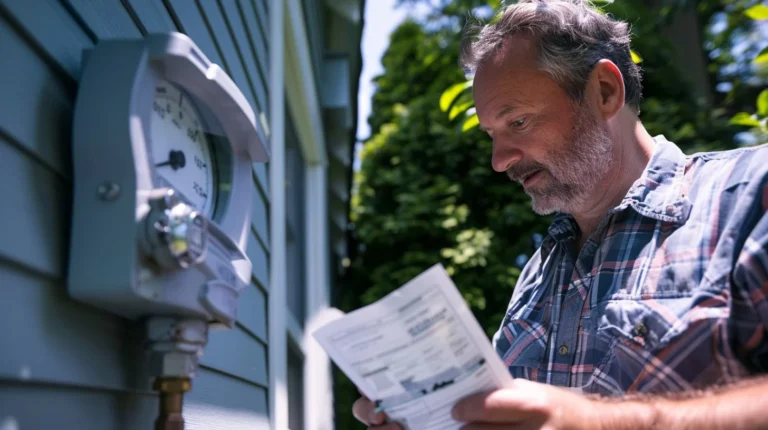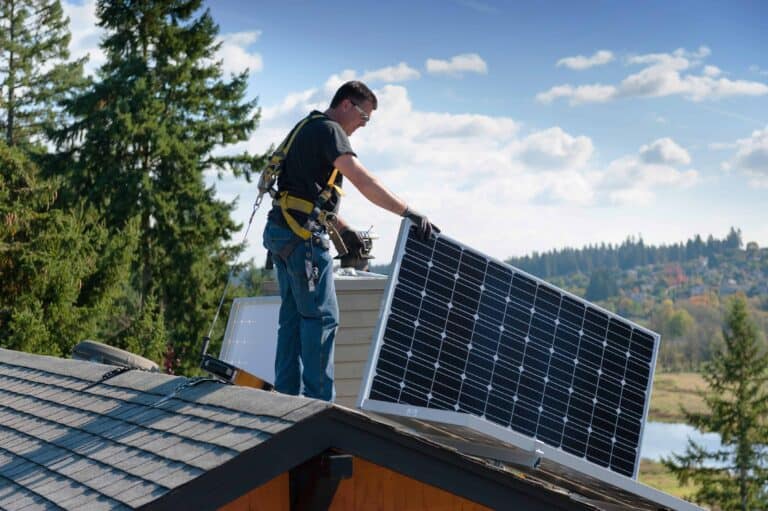Homeowners in the Pacific Northwest might wonder whether solar panels are a practical choice given our wet, rainy climate. Fortunately, solar panels can work in all climates, but there are a few other factors to consider when determining whether they can work with your residential home.
Is My Roof Suitable for Solar Panels?
For solar panels to work most effectively, they need to be installed on a sturdy surface and have direct access to the sun. Our solar experts can guide you through every step, ensuring your roof is ready for a seamless and efficient solar installation while maximizing your investment in renewable energy.

Solar panels perform best when installed on a roof with ample sunlight and a solid structure. Using lidar-based technology, we analyze shading, roof pitch, and obstructions to determine your roof’s solar resource factor, a 0-100% score of its energy-capturing potential. Best practices recommend a score of at least 75% to ensure solar is a sound investment, and this assessment is something we can perform during your initial consultation.
Another critical consideration is your roof’s structure, especially for older homes. Our team will assess whether the construction can safely support the additional weight of solar panels. This includes an engineering analysis to determine if structural upgrades are needed, and if any required upgrades are needed by our experienced team. These evaluations and upgrades are built into the initial cost of your solar system, providing peace of mind that your roof is fully prepared.
Additionally, your roof should have at least 10 years of life remaining to ensure the long-term success of your solar system. If a roof replacement is necessary, we can assist with that too, minimizing future costs associated with removing and reinstalling panels.
How Do I Start the Process of Going Solar?

If you’re a resident of Oregon or Southwest Washington, Neil Kelly Solar offers a complimentary assessment that will give you a thorough understanding of how solar can work for you and your home.
We’ll help answer:
- What system is right for your home?
- What’s your out-of-pocket cost, after incentives?
- How much will your home’s value increase when you add solar?
- How much energy will your system produce?
- How long will it take your system to pay for itself?
How Expensive is Solar Power?
Many homeowners wonder if solar is worth it financially, especially given the costs of installation. However, if you’re purchasing your solar energy system, solar loans can greatly decrease the up-front costs. Similar to home improvement loans, some jurisdictions provide subsidized solar energy loans with below-market interest rates. In many cases, your monthly payment will be lower than a regular energy bill.
A home solar energy system that costs about $13,400 after the 30% federal tax credit typically saves homeowners approximately $1,500 annually on energy costs. With these savings, solar usually pays for itself in less than 10 years, making it a smart and cost-effective investment for homeowners.
Your Potential Savings From Going Solar

Going solar saves homeowners money, but the exact amount depends on factors like your household’s electricity usage, the size of your solar system, and how much energy it generates. In the Pacific Northwest, utilities offer net metering, providing a 1-to-1 credit at market rates for any excess energy your system sends back to the grid.
Utility incentives can also significantly boost your savings. If you live in Portland General Electric or Pacific Power territory, you may qualify for Energy Trust of Oregon incentives—up to $18,300 for income-qualified families, especially when including a battery system. This makes solar an even more accessible and cost-effective choice for Oregon homeowners.
Your Neil Kelly Solar Consultant will walk you through these factors to help determine your potential savings.
Meet The Neil Kelly Solar Team >
How Will Solar Impact the Value of My Home?
Buying a solar energy system will likely increase your home’s value. Solar panels are seen as upgrades to potential homebuyers, just like a remodeled kitchen or bathroom, and buyers nationwide are willing to pay as much as $15,000 more for a home with an average solar array.
Get a Quote for Neil Kelly Solar Services
Neil Kelly’s seasoned solar energy professionals have the resources and expertise to tailor a system to the unique requirements of your home. We’ll help evaluate the solar energy system potential of your building or space, plus, we can help you access tax credits and incentives that can offset the cost of installing the system in many areas.
Schedule your complimentary 30-minute assessment via phone or video with a Neil Kelly Solar Consultant today.




